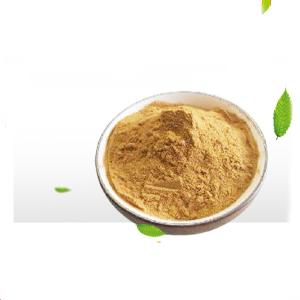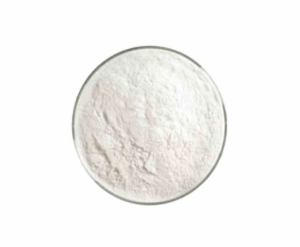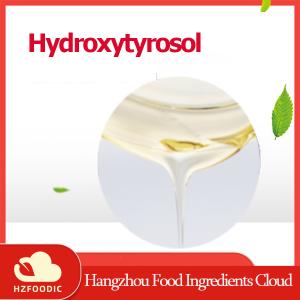Product Categories
--No product--
Hot products
News
The Potential Benefits of Phospholipids in Cardiovascular Health
Time:2024-08-02
Cardiovascular diseases (CVDs) remain a leading cause of morbidity and mortality worldwide, driving the ongoing search for dietary and therapeutic interventions that can support heart health. Among the various nutrients studied for their potential benefits to cardiovascular health, phospholipids have emerged as a topic of considerable interest. Phospholipids are a class of lipids that are fundamental components of cell membranes, with roles extending beyond structural functions to include significant physiological impacts. This article explores the potential benefits of phospholipids in cardiovascular health, delving into their mechanisms of action, current research findings, and implications for dietary and therapeutic use.
Understanding Phospholipids
Phospholipids are a diverse group of lipids characterized by a glycerol backbone, two fatty acid chains, and a phosphate group. The phosphate group is often linked to other molecules, such as choline, ethanolamine, or serine, forming different types of phospholipids.
Phosphatidylcholine (PC): The most abundant phospholipid in cell membranes and a key component of lecithin, which is commonly found in egg yolks and soybeans.
Phosphatidylethanolamine (PE): Another prevalent phospholipid, involved in membrane fusion and cell signaling.
Phosphatidylserine (PS): Important for cell signaling and membrane fluidity, and also has implications in neuroprotection.
Sphingomyelin: A type of phospholipid found in myelin sheaths and associated with cell signaling and membrane stability.
Mechanisms of Action
Phospholipids contribute to cardiovascular health through several mechanisms:
Cell Membrane Integrity and Function
Endothelial Function: Phospholipids are crucial for maintaining the integrity and functionality of endothelial cells, which line blood vessels. Healthy endothelial cells are essential for regulating vascular tone, blood flow, and the prevention of atherosclerosis.
Membrane Fluidity: Phospholipids maintain membrane fluidity, which is critical for the proper function of cardiovascular cells. Alterations in membrane fluidity can affect cell signaling and the response to oxidative stress.
Anti-Inflammatory Effects
Inflammatory Response: Certain phospholipids, such as phosphatidylcholine, can influence inflammatory pathways. They may help modulate the production of pro-inflammatory cytokines and the activation of immune cells, thereby reducing chronic inflammation, a risk factor for cardiovascular diseases.
Oxidative Stress: Phospholipids can affect oxidative stress by participating in the synthesis of anti-inflammatory and antioxidant molecules, such as resolvins and protectins, which help counteract oxidative damage.
Lipid Metabolism and Cholesterol Regulation
Lipid Transport: Phospholipids play a role in lipid metabolism and cholesterol transport. They are integral components of lipoproteins, which transport cholesterol and triglycerides through the bloodstream.
Cholesterol Efflux: Certain phospholipids may enhance cholesterol efflux from cells, promoting the removal of excess cholesterol and reducing the risk of plaque formation in arteries.
Platelet Aggregation and Clotting
Platelet Function: Phosphatidylserine, present on the inner leaflet of cell membranes, can influence platelet activation and aggregation. Proper regulation of platelet function is crucial for preventing excessive clotting and thrombus formation, which can lead to heart attacks and strokes.
Clotting Cascade: Phospholipids participate in the clotting cascade, and their role in maintaining a balanced coagulation process can impact cardiovascular health by preventing inappropriate clot formation.
Current Research Findings
Research into the role of phospholipids in cardiovascular health has yielded promising findings:
Phosphatidylcholine (PC) and Cardiovascular Risk
Choline Metabolism: Phosphatidylcholine is a source of choline, which is involved in methylation processes and the regulation of homocysteine levels. Elevated homocysteine is a known risk factor for cardiovascular diseases. Studies suggest that adequate intake of phosphatidylcholine may help lower homocysteine levels and reduce cardiovascular risk.
Clinical Trials: Some clinical trials have investigated the effects of phosphatidylcholine supplementation on cardiovascular health. Results have shown potential benefits in reducing LDL cholesterol levels and improving arterial function, although more research is needed to confirm these effects.
Phosphatidylethanolamine (PE) and Endothelial Health
Endothelial Function: Research indicates that phosphatidylethanolamine plays a role in maintaining endothelial function and vascular health. Studies have demonstrated that phosphatidylethanolamine supplementation can improve endothelial nitric oxide production, which supports vasodilation and overall cardiovascular health.
Anti-Atherosclerotic Effects: Some evidence suggests that phosphatidylethanolamine may have protective effects against atherosclerosis by reducing the accumulation of lipids in arterial walls.
Phosphatidylserine (PS) and Heart Health
Platelet Function: Phosphatidylserine is known to influence platelet aggregation and blood clotting. Research has explored its potential role in preventing excessive clotting and reducing the risk of cardiovascular events.
Cognitive and Cardiovascular Health: While phosphatidylserine is primarily studied for its effects on cognitive function, some studies suggest that it may also have indirect benefits for cardiovascular health by supporting overall cellular function and reducing oxidative stress.
Sphingomyelin and Lipid Metabolism
Cholesterol Transport: Sphingomyelin has been shown to play a role in lipid metabolism and cholesterol transport. Research has suggested that alterations in sphingomyelin levels may impact lipid profiles and cardiovascular risk.
Metabolic Syndrome: Some studies have linked sphingomyelin levels with metabolic syndrome, a condition associated with increased cardiovascular risk. Understanding these connections may provide insights into potential therapeutic strategies.
Dietary Sources of Phospholipids
Incorporating phospholipids into the diet can support cardiovascular health. Common dietary sources include:
Egg Yolks: Rich in phosphatidylcholine, egg yolks provide a significant source of this essential phospholipid.
Soybeans and Soy Products: Soy lecithin is a common source of phosphatidylcholine and phosphatidylethanolamine.
Meat and Fish: Animal tissues, particularly organ meats and fatty fish, contain phosphatidylcholine and other phospholipids.
Nuts and Seeds: Certain nuts and seeds provide phospholipids, including phosphatidylcholine and sphingomyelin.
Phospholipids as Therapeutic Agents
The potential therapeutic use of phospholipids for cardiovascular health is an area of active research. Several therapeutic applications are being explored:
Supplementation: Phospholipid supplements, such as those containing phosphatidylcholine or phosphatidylserine, are being studied for their potential cardiovascular benefits. These supplements may help support endothelial function, lipid metabolism, and overall heart health.
Phospholipid-Based Drug Delivery: Phospholipids are used in drug delivery systems to improve the bioavailability and efficacy of cardiovascular medications. Liposomal formulations, which incorporate phospholipids, can enhance the delivery of drugs to target tissues and improve therapeutic outcomes.
Functional Foods: Incorporating phospholipids into functional foods may provide an additional means of supporting cardiovascular health through dietary interventions. Functional foods containing phosphatidylcholine or other phospholipids are being developed and tested for their potential benefits.
Challenges and Considerations
While the potential benefits of phospholipids in cardiovascular health are promising, several challenges and considerations must be addressed:
Bioavailability and Absorption: The bioavailability and absorption of phospholipids can vary depending on their source and formulation. Ensuring effective delivery and utilization of phospholipids in therapeutic applications is essential for achieving desired health outcomes.
Individual Variability: The effects of phospholipids on cardiovascular health may vary among individuals based on factors such as genetics, existing health conditions, and dietary habits. Personalized approaches to supplementation and dietary intake may be necessary to optimize benefits.
Regulatory and Safety Issues: As with any dietary supplement or therapeutic agent, regulatory and safety considerations must be addressed. Ensuring that phospholipid supplements and functional foods are safe and effective requires rigorous testing and adherence to regulatory standards.
Future Directions
Future research and advancements in the field of phospholipids and cardiovascular health may focus on:
Mechanistic Studies: Further research is needed to elucidate the specific mechanisms by which phospholipids influence cardiovascular health. Understanding these mechanisms can help guide the development of targeted interventions and therapies.
Long-Term Clinical Trials: Long-term clinical trials are essential for confirming the cardiovascular benefits of phospholipid supplementation and dietary intake. These studies will provide valuable insights into the effectiveness and safety of phospholipids for heart health.
Integration with Lifestyle Interventions: Combining phospholipid interventions with other lifestyle modifications, such as diet and exercise, may offer a comprehensive approach to cardiovascular health. Research exploring the synergistic effects of these interventions will be valuable.
Conclusion
Phospholipids play a crucial role in maintaining cardiovascular health through their effects on cell membrane integrity, inflammation, lipid metabolism, and platelet function. The potential benefits of phospholipids, such as phosphatidylcholine, phosphatidylethanolamine, phosphatidylserine, and sphingomyelin, offer promising avenues for supporting heart health and preventing cardiovascular diseases.
While current research highlights the potential advantages of phospholipids, further studies are needed to fully understand their mechanisms and confirm their effectiveness in clinical settings. Addressing challenges related to bioavailability, individual variability, and regulatory issues will be essential for optimizing the use of phospholipids in cardiovascular health.
Understanding Phospholipids
Phospholipids are a diverse group of lipids characterized by a glycerol backbone, two fatty acid chains, and a phosphate group. The phosphate group is often linked to other molecules, such as choline, ethanolamine, or serine, forming different types of phospholipids.
Phosphatidylcholine (PC): The most abundant phospholipid in cell membranes and a key component of lecithin, which is commonly found in egg yolks and soybeans.
Phosphatidylethanolamine (PE): Another prevalent phospholipid, involved in membrane fusion and cell signaling.
Phosphatidylserine (PS): Important for cell signaling and membrane fluidity, and also has implications in neuroprotection.
Sphingomyelin: A type of phospholipid found in myelin sheaths and associated with cell signaling and membrane stability.
Mechanisms of Action
Phospholipids contribute to cardiovascular health through several mechanisms:
Cell Membrane Integrity and Function
Endothelial Function: Phospholipids are crucial for maintaining the integrity and functionality of endothelial cells, which line blood vessels. Healthy endothelial cells are essential for regulating vascular tone, blood flow, and the prevention of atherosclerosis.
Membrane Fluidity: Phospholipids maintain membrane fluidity, which is critical for the proper function of cardiovascular cells. Alterations in membrane fluidity can affect cell signaling and the response to oxidative stress.
Anti-Inflammatory Effects
Inflammatory Response: Certain phospholipids, such as phosphatidylcholine, can influence inflammatory pathways. They may help modulate the production of pro-inflammatory cytokines and the activation of immune cells, thereby reducing chronic inflammation, a risk factor for cardiovascular diseases.
Oxidative Stress: Phospholipids can affect oxidative stress by participating in the synthesis of anti-inflammatory and antioxidant molecules, such as resolvins and protectins, which help counteract oxidative damage.
Lipid Metabolism and Cholesterol Regulation
Lipid Transport: Phospholipids play a role in lipid metabolism and cholesterol transport. They are integral components of lipoproteins, which transport cholesterol and triglycerides through the bloodstream.
Cholesterol Efflux: Certain phospholipids may enhance cholesterol efflux from cells, promoting the removal of excess cholesterol and reducing the risk of plaque formation in arteries.
Platelet Aggregation and Clotting
Platelet Function: Phosphatidylserine, present on the inner leaflet of cell membranes, can influence platelet activation and aggregation. Proper regulation of platelet function is crucial for preventing excessive clotting and thrombus formation, which can lead to heart attacks and strokes.
Clotting Cascade: Phospholipids participate in the clotting cascade, and their role in maintaining a balanced coagulation process can impact cardiovascular health by preventing inappropriate clot formation.
Current Research Findings
Research into the role of phospholipids in cardiovascular health has yielded promising findings:
Phosphatidylcholine (PC) and Cardiovascular Risk
Choline Metabolism: Phosphatidylcholine is a source of choline, which is involved in methylation processes and the regulation of homocysteine levels. Elevated homocysteine is a known risk factor for cardiovascular diseases. Studies suggest that adequate intake of phosphatidylcholine may help lower homocysteine levels and reduce cardiovascular risk.
Clinical Trials: Some clinical trials have investigated the effects of phosphatidylcholine supplementation on cardiovascular health. Results have shown potential benefits in reducing LDL cholesterol levels and improving arterial function, although more research is needed to confirm these effects.
Phosphatidylethanolamine (PE) and Endothelial Health
Endothelial Function: Research indicates that phosphatidylethanolamine plays a role in maintaining endothelial function and vascular health. Studies have demonstrated that phosphatidylethanolamine supplementation can improve endothelial nitric oxide production, which supports vasodilation and overall cardiovascular health.
Anti-Atherosclerotic Effects: Some evidence suggests that phosphatidylethanolamine may have protective effects against atherosclerosis by reducing the accumulation of lipids in arterial walls.
Phosphatidylserine (PS) and Heart Health
Platelet Function: Phosphatidylserine is known to influence platelet aggregation and blood clotting. Research has explored its potential role in preventing excessive clotting and reducing the risk of cardiovascular events.
Cognitive and Cardiovascular Health: While phosphatidylserine is primarily studied for its effects on cognitive function, some studies suggest that it may also have indirect benefits for cardiovascular health by supporting overall cellular function and reducing oxidative stress.
Sphingomyelin and Lipid Metabolism
Cholesterol Transport: Sphingomyelin has been shown to play a role in lipid metabolism and cholesterol transport. Research has suggested that alterations in sphingomyelin levels may impact lipid profiles and cardiovascular risk.
Metabolic Syndrome: Some studies have linked sphingomyelin levels with metabolic syndrome, a condition associated with increased cardiovascular risk. Understanding these connections may provide insights into potential therapeutic strategies.
Dietary Sources of Phospholipids
Incorporating phospholipids into the diet can support cardiovascular health. Common dietary sources include:
Egg Yolks: Rich in phosphatidylcholine, egg yolks provide a significant source of this essential phospholipid.
Soybeans and Soy Products: Soy lecithin is a common source of phosphatidylcholine and phosphatidylethanolamine.
Meat and Fish: Animal tissues, particularly organ meats and fatty fish, contain phosphatidylcholine and other phospholipids.
Nuts and Seeds: Certain nuts and seeds provide phospholipids, including phosphatidylcholine and sphingomyelin.
Phospholipids as Therapeutic Agents
The potential therapeutic use of phospholipids for cardiovascular health is an area of active research. Several therapeutic applications are being explored:
Supplementation: Phospholipid supplements, such as those containing phosphatidylcholine or phosphatidylserine, are being studied for their potential cardiovascular benefits. These supplements may help support endothelial function, lipid metabolism, and overall heart health.
Phospholipid-Based Drug Delivery: Phospholipids are used in drug delivery systems to improve the bioavailability and efficacy of cardiovascular medications. Liposomal formulations, which incorporate phospholipids, can enhance the delivery of drugs to target tissues and improve therapeutic outcomes.
Functional Foods: Incorporating phospholipids into functional foods may provide an additional means of supporting cardiovascular health through dietary interventions. Functional foods containing phosphatidylcholine or other phospholipids are being developed and tested for their potential benefits.
Challenges and Considerations
While the potential benefits of phospholipids in cardiovascular health are promising, several challenges and considerations must be addressed:
Bioavailability and Absorption: The bioavailability and absorption of phospholipids can vary depending on their source and formulation. Ensuring effective delivery and utilization of phospholipids in therapeutic applications is essential for achieving desired health outcomes.
Individual Variability: The effects of phospholipids on cardiovascular health may vary among individuals based on factors such as genetics, existing health conditions, and dietary habits. Personalized approaches to supplementation and dietary intake may be necessary to optimize benefits.
Regulatory and Safety Issues: As with any dietary supplement or therapeutic agent, regulatory and safety considerations must be addressed. Ensuring that phospholipid supplements and functional foods are safe and effective requires rigorous testing and adherence to regulatory standards.
Future Directions
Future research and advancements in the field of phospholipids and cardiovascular health may focus on:
Mechanistic Studies: Further research is needed to elucidate the specific mechanisms by which phospholipids influence cardiovascular health. Understanding these mechanisms can help guide the development of targeted interventions and therapies.
Long-Term Clinical Trials: Long-term clinical trials are essential for confirming the cardiovascular benefits of phospholipid supplementation and dietary intake. These studies will provide valuable insights into the effectiveness and safety of phospholipids for heart health.
Integration with Lifestyle Interventions: Combining phospholipid interventions with other lifestyle modifications, such as diet and exercise, may offer a comprehensive approach to cardiovascular health. Research exploring the synergistic effects of these interventions will be valuable.
Conclusion
Phospholipids play a crucial role in maintaining cardiovascular health through their effects on cell membrane integrity, inflammation, lipid metabolism, and platelet function. The potential benefits of phospholipids, such as phosphatidylcholine, phosphatidylethanolamine, phosphatidylserine, and sphingomyelin, offer promising avenues for supporting heart health and preventing cardiovascular diseases.
While current research highlights the potential advantages of phospholipids, further studies are needed to fully understand their mechanisms and confirm their effectiveness in clinical settings. Addressing challenges related to bioavailability, individual variability, and regulatory issues will be essential for optimizing the use of phospholipids in cardiovascular health.


 CN
CN






